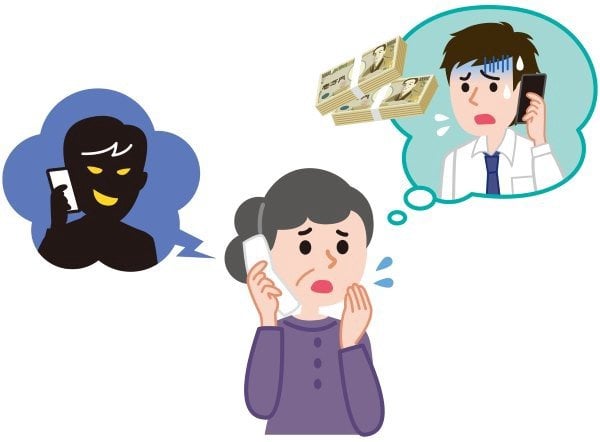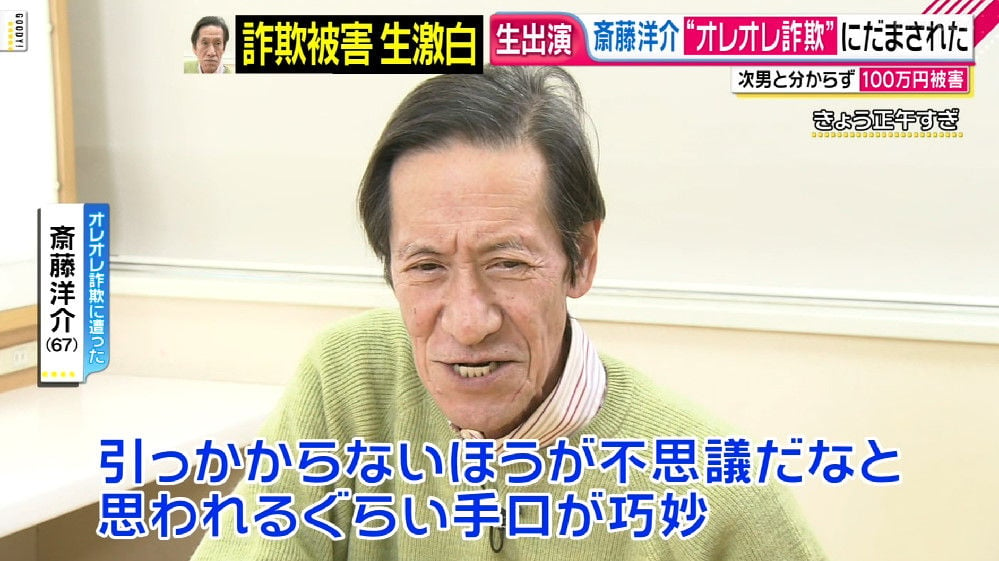One of the best things about living in Japan is a very low crime rate. People are just good folks, and if you lose your wallet in public, you’ll likely get it returned to you with all cards and cash inside…even in the legendary chaos of Halloween night in Shibuya last year. Sadly, just two weeks ago my son got his wallet pickpocketed while visiting Rome. Sigh.
But one problem Japan does have is telephone-based fraud aimed at the elderly since one in five Japanese is over the age of 70. This generally involves criminals calling elderly, usually claiming to be a family member, and demanding a cash payment to “take care of” some situation such as drunk driving or sexual harassment charge. In 2018 there were 16,493 of these scams reported, resulting in the equivalent of $320 million being stolen.
The problem started becoming a major social issue 20 years ago, and has gone through several name changes as the tactics of the criminals has evolved. First, it was called ore ore sagi or “hey, it’s me!” fraud, from the way callers would pretend to be the son or grandson of an elderly person, then go on to explain why he needed money because of a financial bind he was in. Soon the crime was changed to the more generic furikome sagi or “transfer money to me!” fraud. Banks and police took the problem extremely seriously — I remember seeing a policeman stationed near the ATMs at my local bank, interviewing each elderly person to make sure they weren’t transferring money based on a phone call they’d received. Since it’s gotten more dangerous to steal money through the banking system, the newest tactic is apoden sagi or “appointment call scams” where the callers order their victims to prepare the money, and they’ll go pick it up at an appointed time.

That’s what happened to actor Yousuke Saito — you might him if you’re a fan of Kamen Rider films — who fell victim to this kind of fraud this week. Someone called pretending to be his son, saying that he’d gotten involved in a relationship with a minor and needed $50,000 USD to pay off the girl’s family. Saito was able to talk the amount down to $10,000, and the criminal made an appointment to pick the money up later that day. Only after he’d handed the money over did he realize he’d been duped.
The problem with the new “appointment call” scams is that they can lead to murder, which is what happened to 80-year-old Kato Kuniko, who was killed by three men who were executing this kind of fraud against her. Which is incredibly bone-chilling.
These crimes are terrible, but even worse because they’re aimed at the elderly, who sometimes have more money in their bank account than good sense in their heads, and all too often, Alzheimer’s to boot. Incredibly, similar calls have been received at my house, and everyone in my family is extra careful when my mother-in-law is talking on the phone with someone we don’t know, as she’d be the one most likely to fall for this kind of scheme.















